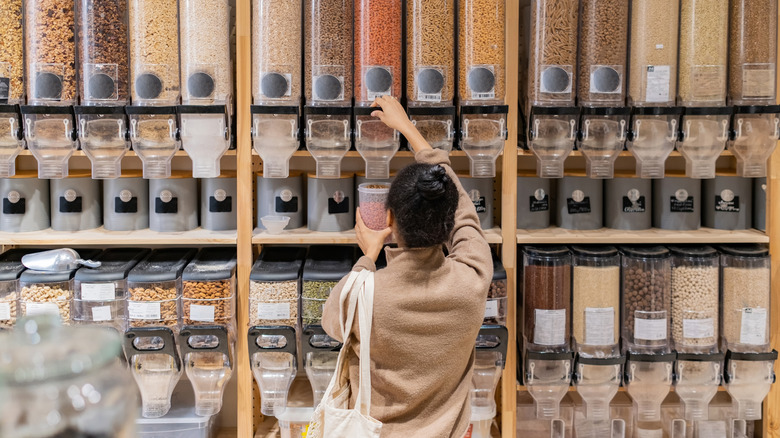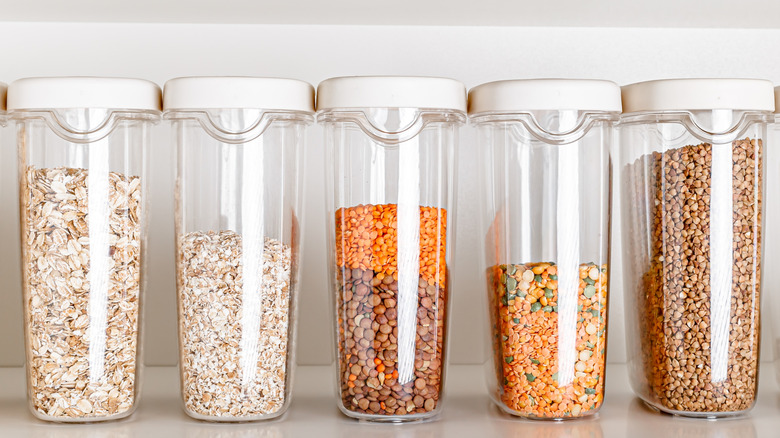The Simple Tip To Store Bulk Foods When You Don't Have Tons Of Space
We may receive a commission on purchases made from links.
Have you ever made it home with a surplus of groceries, only to cram them onto your shelves with no clear organizational system in sight? Here's an ingenious fix for those foods that never seem to fit — swap the original containers out for space-saving alternatives. It's a practical solution for anyone with compact living spaces and devout meal preppers seeking easy access to ingredients. Plus, repackaging offers a visual glow-up for those with open shelving and pantry systems, adding a calming and well-labeled touch to the kitchen.
We know some may object, thinking it may take more time and money to use separate storage solutions. But imagine the time you'll save when rummaging through cluttered food items becomes a thing of the past. Hesitant to splurge on new bins and bags? Consider it an investment — picture all the money you'll save on pasta, baking staples, and coffee beans by avoiding waste caused by improper food storage.
And the benefits aren't just limited to non-perishables. Repackaging your food can add order and efficiency to any kitchen zone, including items in your pantry, fridge, freezer, drawers, and even floating shelving over appliances such as the oven. It can be a big project to tackle all at once, so we recommend working systematically, targeting "problem areas" first. Say your fridge is the main source of frustration, and you can never get to the rear to recover that lost jar of pickles — this is where you should prioritize your efforts.
Try these handy containers for storing bulk foods and saving space
When purchasing reusable packaging, you'll make your selections based on the food that you most commonly purchase. You'll want to label these containers, and with reusable label stickers, it's easy to add an expiration date to keep track of freshness. For non-perishable items in cupboards and pantries, go with rigid and airtight options that keep pests out and are easy to stack. Clear plastic flip-top storage systems or sealable glass jars allow you to monitor the contents within. These also work great for countertop essentials like coffee, tea, and snacks.
In the fridge, you can preserve the longevity of leafy greens with items like reusable produce bags and store other produce in fruit-specific storage bins, including removable colanders that make rinsing a breeze. Glass is best for storing meats and cheeses since it's easy to sterilize and won't absorb odors or stains.
As for frozen goods, it's important to keep air out. Oxygen exposure leads to freezer burn, the unwelcome layer of frost that dries out edibles. Heavy-duty plastic wrap, foil, parchment paper, and plastic bags are great options. But we recommend investing in a game-changing vacuum sealer, a handy gadget that pulls air out of a plastic bag and seals it, saving a ton of space. Using one makes it easy to see what's inside and label each bag, so it doesn't disappear into the frozen abyss after passing its prime.


